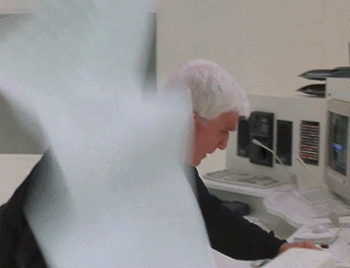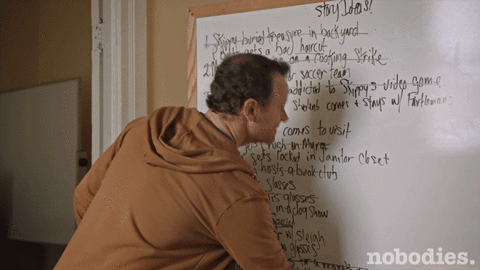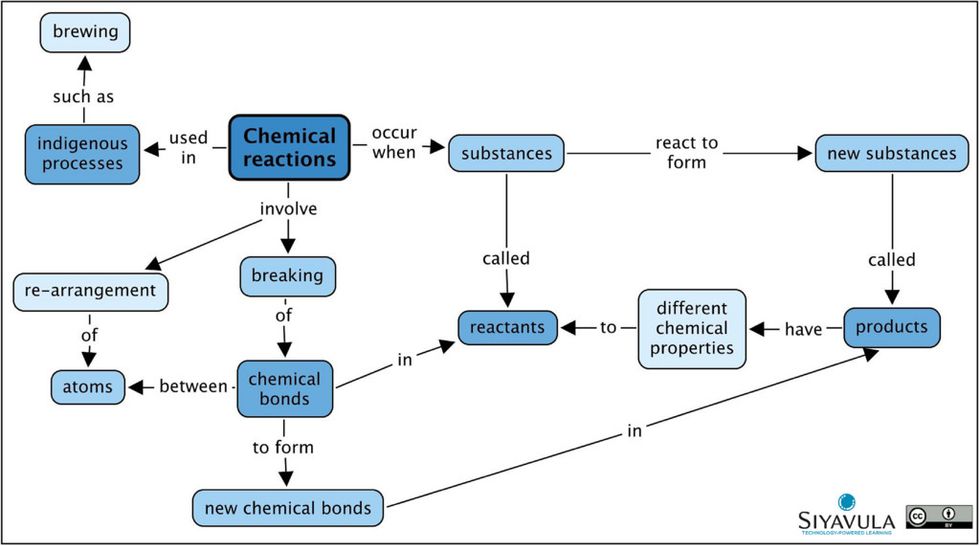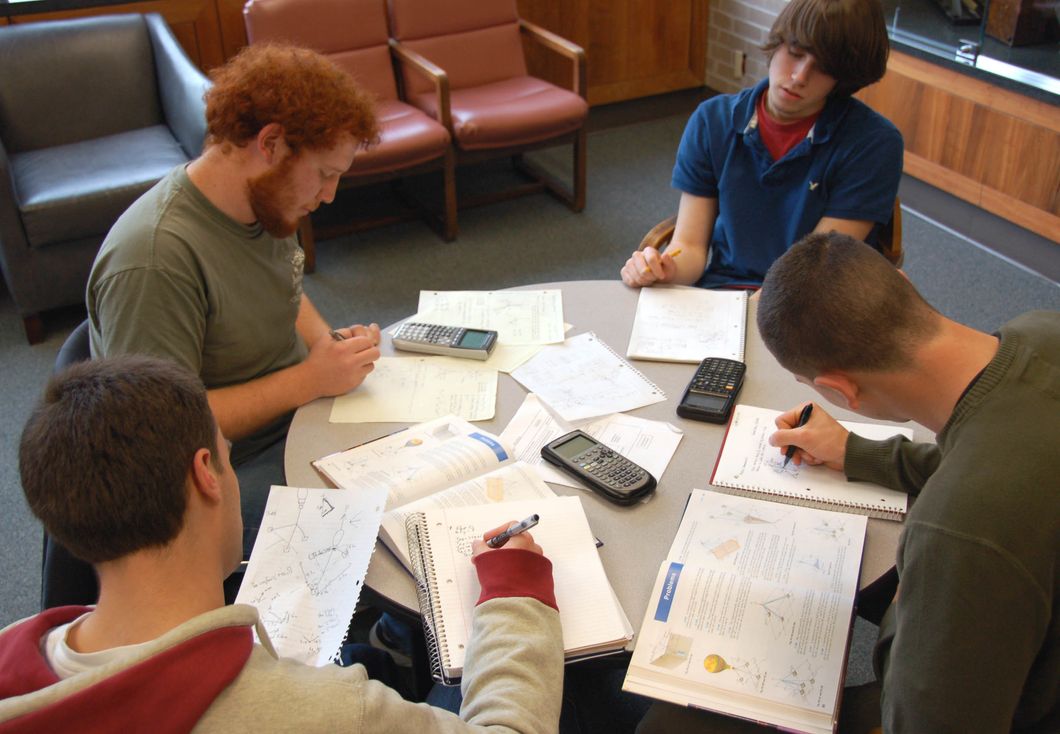With finals fast approaching, I thought I'd make a list of all the things I never picked up in high school, but really wish I had. The thing is, college is super different from high school. In high school, the teachers taught everything with that one big test in mind, whether it was the AP test, the ACT, or simply the final. Everything was centered around improving test scores and making sure you memorized every detail. For me, that was perfect. I'm really good at memorizing facts. I could glance over the vocab list or history study guide once or twice an hour before the test and then ace it.
Maybe you're like me. If so, college has probably hit you like a ton of bricks. You see, here professors are generally more interested in making sure you understand ideas, themes, the foundations of your coursework. It's not just about passing a test anymore; they want you to really understand what you're learning, be able to summarize and apply it.
This is so totally different than what I was used to. I can't just glance over my notes for a few minutes and expect to pass my exams anymore. I can't waste all my time watching Netflix instead of studying, because if I do, I'll fail. I'm smart, but without solid study habits, I have no way of translating that intelligence into good grades. I've had to get some study skills really quickly. Here's a list of what works for me!
1. Read the textbook.

This might sound obvious, but it was honestly a foreign concept to me when I started the semester. I never had to do that in high school. But in college, a lot of your learning comes on your own, from reading the textbook. As boring as it may seem, keeping up with reading pays off when exam-time comes around!
Don't just read, either. Take your time, make notes, try to understand. And if there's a concept you're not getting, ask your professor or TA! They'll be more than happy to help a student who's actually putting in the work.
2. Keep track of your assignments.

Another thing that seems too obvious, but I had a hard time doing this at the beginning of the semester. With four or five classes and different assignments and due dates for each one, it can be easy to let things slip.
I'm not going to tell you how to keep track of your assignments. Everyone's different. In high school, I used a planner, but in college, I couldn't keep up with it. I honestly use the Stickies app on my computer and just make a running list of everything I need to do for the week, in the order that it's all due. And that works for me: the stress of having such a long list generally pushes me to finish my assignments earlier. But find something that works for you! There are hundreds of apps, dozens of types of planners, and so many other creative ways to keep track of what you have to do!
3. Do NOT procrastinate!

One of my biggest problems is that I have horrible time management. All that coasting in high school put me in the mentality of "do it the day it's due," but a lot of the time that doesn't work in college. Not with assignments, and definitely not with studying.
Time management is super important. With all the clubs you're joining, classes you're in, and things your friends want to do, finding time for studying can be really hard, but it's important to make that time. What I've learned is that even a free fifteen minutes is enough to get something done. I can't just waste that time like I used to.
My little list of things to do also helps me keep from procrastinating. I'm the type of person who hates feeling like I have a lot to do, and that list shows me that I do indeed have a lot to do. To get rid of the anxiety, I work on doing everything in that list before I give myself time to binge a show on Netflix.
4. Practice exams are a blessing!

Not all professors will give you practice exams, but those that do are the absolute best. You need to take advantage of those resources! Take a practice exam to gauge where you're at in understanding course material. It will give you a good idea of what you don't understand, so you can focus on that, and what you do understand, so you don't have to waste your time studying that!
Something I didn't really understand going into college was that good studying doesn't necessarily mean going over everything over and over again. If I understand a concept well, I don't need to keep going back to it. That not only saves time and helps you work efficiently, but it also means you focus better on things you don't understand because you're not flooding your mind with too much information.
5. Use a whiteboard.

There's actually good evidence that writing things down helps us remember. That's why, if you've written good notes on a lecture, you often remember it much better. I like to go to the library (which is lovely enough to provide whiteboards for students) and just write things. I draw concept maps, write out Spanish vocabulary, do math practice problems. It all helps. And with whiteboards, you're not wasting paper! Yay, environment!
6. Concept maps!

I had no idea what a concept map was until my biology professor made us do one as a pop quiz. They're actually super cool, and a really great way to make connections in a subject like science or history where it's important to be able to see the big picture.
All you do is take a list of key terms and pick one to start with. Maybe you're in a science class and have DNA. Okay, so write DNA on your paper, and box it in. Now, look at your list and see if any other terms are related. Maybe you see the word cells. Box that in, and make an arrow from cells to DNA. Write something like "contain." There, you've made a connection!
Concept maps are super useful for seeing the big picture! They might sound tedious or like a waste of time, but try them just once! You'll be amazed by how much they can help!
7. Turn off your phone.

Like, all the way off. I know we all say we can resist the temptation, we can be strong and ignore those snaps and Insta DMs, but I think deep down we all know that's a lie. There's just something about our phone buzzing that makes us lose all concentration. In fact, studies show that even having your phone within reach can reduce your cognitive capacity.
A really good way to improve your concentration is to put your phone out of reach or out of sight. If possible, even put it in a different room! I live in a dorm, so I can't always do that, but I'll put my phone on a shelf across the room, or even just behind my laptop so I can't see it. When it's out of my sight, it isn't as distracting.
One more smartphone trick: If you have an iPhone, Apple's new screentime has a neat feature called downtime. You can "turn off" all but the essential apps on your phone for any set amount of time that you want! I use it to disable Instagram, Snapchat, and all other apps that I tend to spend far too much time on. Being able to disconnect in a more tangible way than simply telling myself I won't get on my phone helps me to focus and actually stay off my phone.
8. Schedule breaks.

In high school, I thought taking breaks while studying was counter-productive. After all, shouldn't you just try to study as much as possible? However, now I recognize that real studying can be exhausting and overwhelming. If you don't set aside time for breaks, to recover mentally, then you're going to quickly burn out.
9. Go to bed on time.

It's better to go to bed on time and wake up a little earlier than to pull an all-nighter. According to one study, "Sleep deprivation's effect on working memory is staggering. Your brain loses efficiency with each hour of sleep deprivation." You won't retain a lot of what your study late at night. That means that you can do the same amount of studying in less time in the morning. Crazy, right?
It's important to get a healthy amount of sleep (7-8 hours!) in order for our body to function properly. If you're sleep deprived, you can be more susceptible to illness, stress, fatigue, weight gain, decreased academic performance, and increased mental health issues. No matter how stressed you are about your grades, don't risk these consequences for your grade! Get a healthy amount of sleep, and make sure to put more effort into planning your time well!
Now go out there and take on your finals like a pro!
















